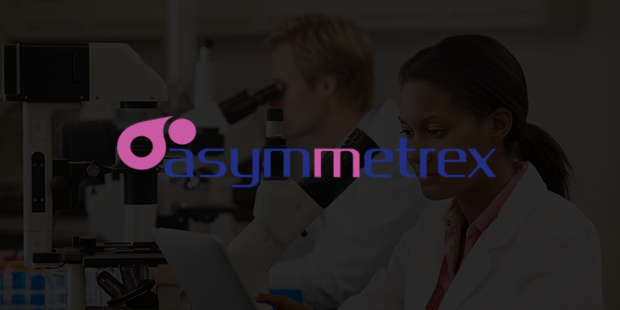Last week, stem cell biotechnology company Asymmetrex® announced another milestone in its vision for improving stem cell science and medicine. The Boston, Massachusetts based company announced the availability on its company website of free online calculators that convert simple cell culture data into tissue stem cell counts. Four of the five calculators can be used to quantify the specific fraction or dosage of blood hematopoietic stem cells present in commonly supplied preparations for adult and pediatric stem cell transplantation treatments. The fifth calculator quantifies the stem cells found in fat tissue, which many groups are currently investigating for medical and cosmetic applications.
The editors of TechCompanyNews reached out to Asymmetrex®’s founder, President, and CEO, James L. Sherley, M.D., Ph.D., to learn more about the new calculators and their applications.

TCN: Why did Asymmetrex® decide to offer the new stem cell calculators for free?
Sherley: We decided to introduce the new calculators to stem cell research and medicine communities with as few barriers to use as possible. We realized a while back that we had many users, hundreds each month, of three general cell counting calculators free on our website. Those users were already performing the cell culture procedures needed for the rapid stem cell-counting calculators. So, it made sense to give the same users, and newcomers, the opportunity to count the stem cells in their samples freely at the same site.
TCN: How do the calculators work?
Sherley: It shouldn’t surprise anyone who understands tissue cells that the rate at which cultured tissue cells proliferate is somehow related to how many tissue stem cells are present in the culture. What Asymmetrex® has done is define mathematical algorithms that relate the rate of a culture’s proliferation to the number of tissue stem cells it contains. These algorithms power the free online calculators that are now available.

TCN: That seems rather simple. Why weren’t such algorithms known before?
Sherley: Actually, I don’t think anyone had ever considered the existence of such algorithms before we showed they existed. My previous academic research teams had been trying to derive them for years before I founded Asymmetrex®, but a number of essential tissue cell multiplication factors needed to derive them were not available. Asymmetrex®’s patented TORTOISE Test® computational simulation software allowed us to determine the missing multiplication factors; and with them we could now derive the algorithms that convert conventional cell proliferation data into stem cell counts.
TCN: What applications do you envision for the free calculators?
Sherley: Because of the importance of tissue stem cells in normal tissues and diseases like cancer and processes like aging, there are many applications for this new innovation. Many academic labs pursuing tissue cell research, whether general or focused on tissue stem cells, will be able to improve their studies by applying the new stem cell quantification. Cellular effects, molecular mechanisms and markers, biochemical factors, etc. can now be related quantitively to the number of stem cells involved in the research.
Every center administering treatments containing stem cells, whether for approved transplantation therapies or experimental therapies, can begin to relate clinical outcomes to the number of treating stem cells. This long-lacking capability is predicted to be transformative for improving stem cell medicine, as well as gene therapies implemented by targeting tissue stem cells.
Suppliers of tissue stem cells for research and medicine can use the calculators to monitor stem cells for optimizing their production processes and to certify the stem cell content of their products. There are also important applications for biopharmaceutical and pharmaceutical drug evaluations to detect stem cell-toxic drugs without the use of animals or clinical trial subjects. Drug candidates that are stem cell-toxic cause chronic organ failure, a major cause of drug development failures.

TCN: This all sounds very good, but it’s not clear to us how Asymmetrex® achieves commercial success by giving away its technology. How does this work?
Sherley: Our commercialization vision is much bigger than the online calculators. We are working now to raise capital to develop the first laboratory instrument that will provide routine rapid counting of many different types of tissue stem cells under many different culture conditions. The five calculators we just introduced are the tip of a very amazing iceberg of technology. There are hundreds, if not thousands, of algorithms for different sources of tissue stem cells maintained in different culture environments. We already have three different beta-test sites for which we have developed proprietary rapid-counting stem cell calculators. The free calculators, more of which we plan to offer in the future, lay the foundation for stem cell counting instruments that will be finely tuned to count each user’s specific stem cell type under a variety of stem cell culture conditions that are important for them. I think I may have shared in a previous TechCompanyNews interview that our vision is stem cell counters in every tissue cell lab, cord blood bank, stem cell transplant center, stem cell production lab, and pharmaceutical toxicology lab. If we succeed in advancing stem cell science and medicine to being long-awaited quantitative disciplines, I am confident that commercial success will follow.
TCN: Well, alright then!
Sherley: Exactly!

